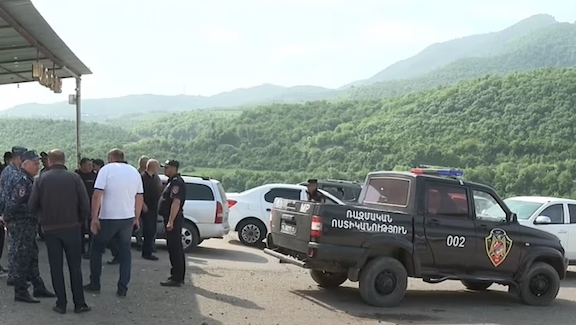On Wednesday, Armenia’s government progressed in the transfer of four border areas to Azerbaijan, despite ongoing protests in Yerevan. The Armenian Foreign Ministry disclosed that deputy prime ministers from both countries met and signed a protocol defining the demarcation coordinates of these areas, determined through geodetic measurements.
The demarcation process commenced immediately after the announcement of the land transfer on April 19, triggering protests from residents of villages in Armenia’s Tavush province. They argue that Prime Minister Nikol Pashinyan’s territorial concessions would isolate their communities and expose them to Azerbaijani threats.
One particularly opposed village, Kirants, faced significant backlash as it was indicated to lose houses and a crucial bridge connecting it to the country. Riot police disbanded a protest camp near Kirants on April 30, arresting many locals who obstructed the clearing of landmines and installation of new border posts. The land transfer preparations paused on May 7 as Archbishop Bagrat Galstanian intensified protests in Yerevan.
Galstanian, supported by opposition groups and public figures, continues demonstrations demanding a halt to the handover and Pashinyan’s resignation. The latest Armenian-Azerbaijani protocol indicates that Azerbaijan will gain control over part of Kirants and its bridge, with the Armenian government pledging compensation for affected villages.
Armenian military units are set to withdraw from all border areas except the most sensitive part of Kirants in the next eight to nine days, with Azerbaijani troops entering later due to unresolved details. These areas were previously occupied by small Azerbaijani villages captured by Armenian forces in 1991-1992, while Azerbaijan took agricultural land from Tavush villages, none of which will be returned under the April 19 deal.
Armenia’s opposition argues that the unilateral concession poses security risks for Tavush and the nation, potentially emboldening Azerbaijan’s territorial claims. Despite this, Pashinyan’s office asserts that a delimited border should not compromise national security.
Azerbaijani President Ilham Aliyev hailed the land transfer as a victory, asserting dominance over the enemy during a speech in Nagorno-Karabakh on May 10.




